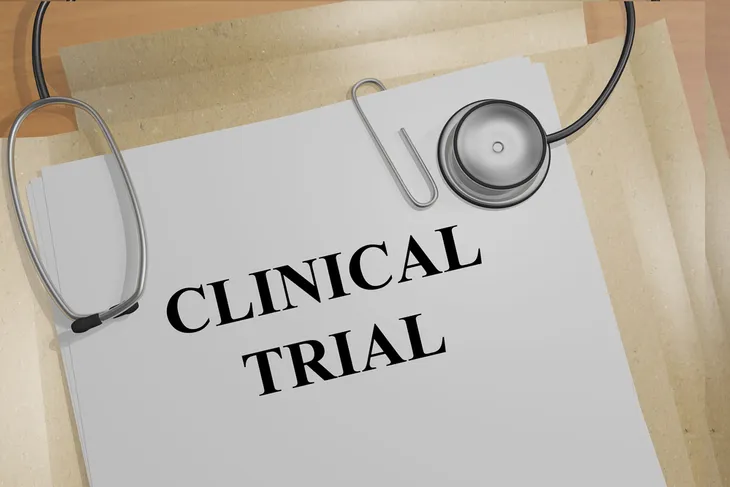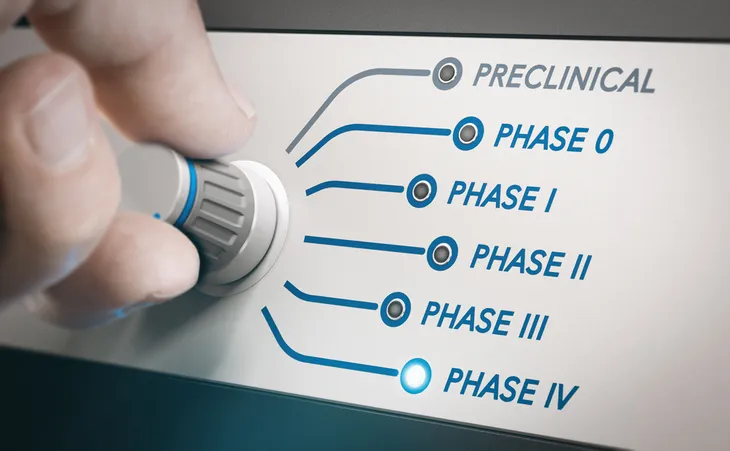- Clinical trials are conducted to test new treatments and devices on people.
- Participants can potentially receive compensation in clinical trials.
- There are various types of trials related to treatment, diagnosing, screening, and more.
The results of clinical trials have the potential to innovate medicine and become standard practice for treating patients around the world. According to Statista, there were over 409,000 clinical studies registered in 2022. But in order for these clinical trials to go anywhere, they need participants to determine whether this new treatment is safe and effective. Anyone can apply to be in a trial if they meet the right criteria.
You might be questioning why anyone would consider being the first group of people using a new treatment. A search online will show you the many benefits that can happen from being a participant.
What Is a Clinical Trial?
Cutting edge medical treatments wouldn’t exist without clinical trials. The U.S. Department of Health and Human Services (HHS) says this research evaluates medical, surgical, or behavioral intervention in people. It’s used to learn whether a new treatment is more effective or has less side effects than the standard treatment.
Some other goals a clinical trial may have include:
- Testing ways to find a disease early;
- Prevent a health problem, or;
- Learn how to improve life for people living with a life-threatening disease or chronic health problem.
 Song_about_summer / Shutterstock
Song_about_summer / ShutterstockWhere Do Clinical Trials Take Place?
Where a clinical trial occurs can depend on who is conducting the study. The person leading the study is referred to as a principal investigator. Most often, this person is a medical doctor. However, all types of professionals can be part of the research team, such as nurses, social workers, and other doctors.
All types of medical settings are used for clinical trials. Some trials take place at:
-
- Hospitals;
- Universities;
- Doctor’s offices, or;
- Community clinics.
 Spiroview Inc / Shutterstock
Spiroview Inc / ShutterstockParticipants Get Paid
The Centers for Medicare and Medicaid Service reports $4.1 trillion was spent on healthcare in the U.S., which breaks down to $12,530 per person. For those diagnosed with serious illnesses, such as cancer, the average total skyrockets to $150,000.
One of the perks to partaking in a clinical trial is receiving the tested treatment at no cost. You can receive the latest treatments and have all medical fees covered. In some clinical studies, you may even be given financial compensation for your participation.
 S_L / Shutterstock
S_L / ShutterstockImprove Your Health
Clinical trials present new treatment opportunities that could be worth exploring. For someone who has gone through all sorts of treatment and experienced little improvement, a trial might be an opportunity to finally make progress. You might also be someone with few options when it comes to treating your health condition.
If you qualify as a clinical trial participant, you could experience positive health benefits. It also gives you an opportunity to access innovative healthcare before it becomes widely available to the rest of the world.
 hafakot / Shutterstock
hafakot / ShutterstockBecome Part of Medical Innovation
There is potential for any clinical trial to be the next big success in healthcare. If you’re a participant, then you can be part of that success. If the trial is successful, it will not only allow you to potentially improve your own health, but also give others the chance to live healthier lives.
Despite being diagnosed with the same disease, people can have different experiences. Clinical trials need a diverse group of participants that’s representative of the real world. This includes diversity in gender, age, and race. By joining, you can help the trial determine its effectiveness on varying types of people.
 Atelier211 / Shutterstock
Atelier211 / ShutterstockHow to Qualify for Clinical Trials
Clinical trials come with its own set of guidelines for participants. To be eligible, you’ll have to pass certain criteria. McGill University Health Centre says the reason why clinical trials come with strict participation guidelines is to ensure the strongest results.
For example, not all cancer patients will qualify for a cancer clinical trial. The researchers will often require someone in a certain stage or with a specific type of cancer. Other criteria a potential participant will have to pass include gender, age, or previous treatments.
 Minerva Studio / Shutterstock
Minerva Studio / ShutterstockTypes of Clinical Trials
Medicine is a diverse field where there is still lots to learn. There are new discoveries and research being conducted everyday, which means there are different types of clinical trials that take place. This includes:
- Prevention Trials: Look for ways to prevent disease.
- Screening Trials: Discover new ways of detecting health conditions.
- Diagnostic Trials: Compare diagnostic tests or procedures.
- Behavioral Trials: Evaluate or compare ways to promote behavior changes to improve health.
- Treatment Trials: Test new treatments and approaches for drugs, surgery, and other therapies.
- Quality of Life Trials: Help improve the lives of people living with conditions or illnesses.
 Sai Thaw Kyar / Shutterstock
Sai Thaw Kyar / ShutterstockClinical Trial Phases
In order for a drug to be approved by the U.S. Food and Drug Administration (FDA), it needs to advance through four testing phases. These phases give researchers an opportunity to test the treatment, find the right dosage, and look out for side effects.
A drug cannot be used for clinical use until it goes through the necessary phases. This means a drug can take anywhere from 10 to 15 years before entering the approval stage.
 Atelier211 / Shutterstock
Atelier211 / ShutterstockThe Four Phases
According to the HHS, clinical trials are broken down into the following four phases:
- Phase I: A small group of 20 to 80 healthy people test the treatment. Researchers judge its safety, look for side effects, and find the correct dosage.
- Phase II: Around 100 to 300 people are tested as researchers observe its effectiveness. It can take several years for this phase to be completed.
- Phase III: The drug is used on different populations with varying dosages. Several hundred to 3,000 people are studied in this stage. The FDA then decides whether the trial is approved based on the results.
- Phase IV: After the FDA approves the drugs or devices, its effectiveness and safety are observed in large and diverse populations.
 Olivier Le Moal / Shutterstock
Olivier Le Moal / ShutterstockThings to Consider
Before joining a clinical trial, it’s a good idea to ask yourself and the practitioner some questions. The answers can be helpful in deciding whether or not you want to be a participant. It’s your body and health, so feel free to ask any questions that come to mind.
Here are some ideas to get you started:
- How long will the appointments be?
- What are potential side effects or risks of this treatment?
- How do the risks and benefits differ in comparison to standard treatment?
- What are my rights as a participant?
- What is informed consent?
- How often will I have to come to the hospital or clinic?
 mapush / Shutterstock
mapush / ShutterstockClinical Trial Success Rate
It’s important to know going into a clinical trial that success is not guaranteed. In fact, about 90 percent of drugs being tested in clinical trials fail. A failure is considered when the drug does not adequately treat the condition or if the side effects are too strong.
Although no one wants a clinical trial to fail, it’s a reality that researchers and participants often have to face. However, failure doesn’t make the trial a waste of time. If anything, it can help those conducting the research discover where to improve and what direction they should work towards next.
 S_L / Shutterstock
S_L / ShutterstockLearn More About Clinical Trials Online
Clinical trials are an important part of advancing healthcare practices. Being a participant can help doctors and researchers discover the latest treatments or observations that can be used on patients in the future.
There are clinical trials available for people who are healthy and those living with health conditions. Depending on the trial, you could even get compensated for your participation. Learn more about clinical trials online and how to potentially include yourself in one.
 TippaPatt / Shutterstock
TippaPatt / Shutterstock


